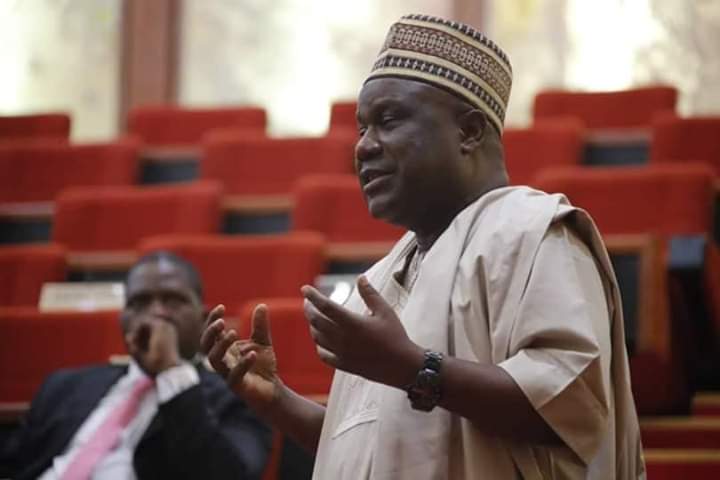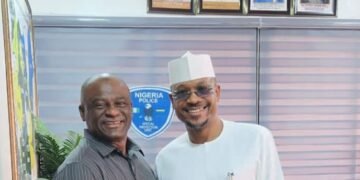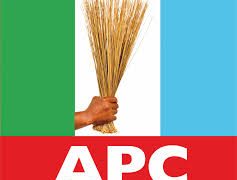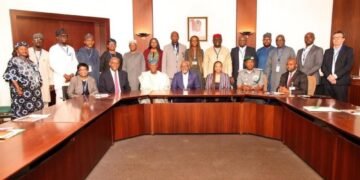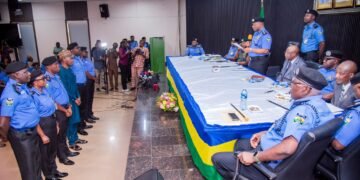Bill to make public debates mandatory for presidential, governorship candidates, others pass second reading
A bill to make the conduct of public debates mandatory for those seeking the office of president, vice president, governors and the deputy governors passed second reading on the floor of the Senate on Thursday.
Senator representing Oyo North, Senator Abdulfatai Buhari while presenting the motion said the bill tagged “Election Debates Bill,” was in line with democratic practices across the world where candidates speak to the people in live debates.
He said noted that “regular debate has enabled the electorate not only to know about the personality of the candidates but also about their lifestyle, belief, reaction to national issues and foreign policy. All this information will inform the electorate on the position to take during the election.
“In fact, the exposure made possible by mandatory political debate will definitely save the country from electing a tyrant.”
The Chairman Senate Committee on Land Transport further argued that if passed into law, it would enable the electorate to probe the minds of candidates for elective offices for presidential and governorship seats on their grasp of the economy, education, foreign policy amongst others.
He said: “This Election Debates Bill, if passed into law shall be used to sample the candidates’ knowledge on a wide range of issues, like a detailed analysis of how they intend to drive the economy, foreign, health and education policies among others. One noteworthy area of the potential impact of the debate is their capacity for what political scientist call agenda setting, research has shown that voters learn from debates, they are more accurately able to describe the platforms of the candidates and this will prompt them to seek out additional information about the candidates. It provides one of the indicators as to how the candidate might respond under pressure as it requires them to be able to think on their feet and be able to respond to unanticipated events.
“It also serves as a national job interview for the office as it gives them the opportunity to speak on a wide range of issues. This might be likened to the power conferred on the senate of the National Assembly under Section 147(1) of the 1999 Constitution (as amended) to confirm the appointment of ministers after being nominated by the President, Commander-in-Chief.”
Senator Buhari whose bill suffered a setback in the 8th Assembly urged his colleagues to support it. He noted that in Africa, countries like Ghana and Sierra Leone have since imbibed the culture of debates as a prelude to elections.
“Other African countries that have imbibed the culture of elections debates include Ghana, Sierra-Leone among others. If these African countries can successfully organise election debates for political nominees thereby strengthening their democracy, it can only be an oversight on the part of Nigeria who prides itself as the giant of Africa not to provide an all-inclusive avenue for her electorate to assess their to-be representatives through the informed process.
“Unlike in the USA where their Election Debates Commission is set up by Convention, it is generally agreed that Nigeria Democracy is still in its infancy that needs popular support to survive and there is no amount of money spent to strengthen it that can be regarded as a waste. What we have presently as Nigeria Election Debate is an effort in futility as participants find pleasure in boycotting it at will. Nigeria nascent democracy cannot develop by this attitude.”
Senators who spoke in support of the bill, however, suggested that the electoral umpire, the Independent National Electoral Commission should be insulated from organising the debates.
Senator representing Kogi west, Smart Adeyemi suggested that the Nigerian Labour Congress and the Nigerian Union of Journalists should be saddled with the responsibility.
“I am in support of the bill. It will enable Nigerians have an insight into the mindset of candidates, know where they are coming from and their deep knowledge of issues.”
In his closing remarks, President of the Senate, Ahmad Lawan agreed that INEC should be insulated from organising public debates.
He said: “INEC has enough responsibility to give it an additional duty, I think we should involve non-state actors to organise it. On the whole, it is an opportunity for both the voters and candidates to decide their candidates to make a good and bad judgement
Tribune


